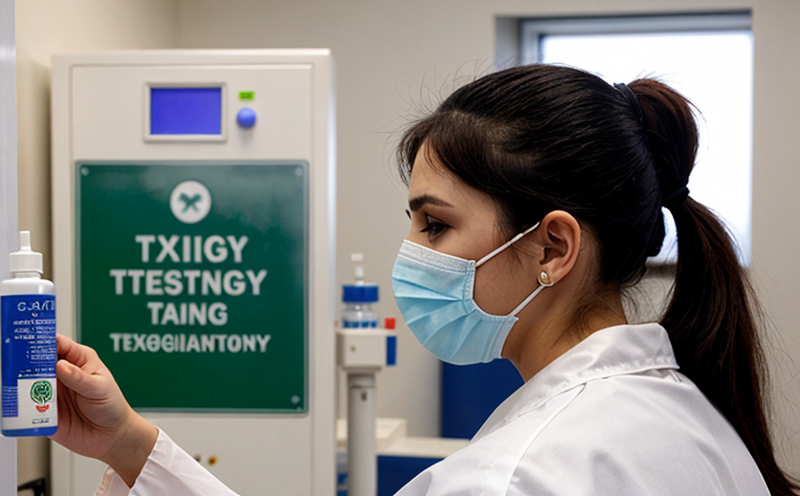Mouse Lymphoma Assay OECD 490
The Mouse Lymphoma Assay (MLA), OECD Guideline 490, is a widely recognized in vitro mutagenicity test that evaluates the potential of chemical substances to cause genetic damage. This assay measures the ability of chemicals to induce mutations in mouse lymphoma cells by assessing changes in the frequency of revertant mutants. It is particularly valuable for pharmaceuticals because it provides early indications of genotoxicity, which can inform safety assessments.
The MLA employs L5178Y mouse lymphoma cells that have a specific mutation (TK gene) resulting in sensitivity to 6-thioguanine. When exposed to mutagenic agents, these cells revert back to normal growth by acquiring the necessary TK activity. The assay can detect various types of genotoxicity including base substitutions, frameshift mutations, and chromosomal aberrations.
The OECD 490 MLA is a critical tool for pharmaceutical companies during early stages of drug development when the safety profile of new chemical entities needs to be assessed. It helps identify potential risks associated with compounds at an early stage, allowing for informed decisions about further clinical trials or development modifications.
For accurate results, rigorous quality assurance protocols are essential. This includes ensuring that all reagents used meet stringent specifications and are stored correctly according to manufacturer instructions. Additionally, trained personnel who understand both the biological principles behind the assay as well as its operational requirements must conduct the experiments.
The OECD 490 MLA typically involves several steps: cell culture establishment, treatment with test substance(s), incubation period, selection media application, scoring of colonies, and data analysis. Each step requires careful execution to ensure reliable outcomes reflecting true mutagenic potential rather than laboratory artifacts.
Interpreting the results correctly is crucial; deviations from expected patterns could indicate genotoxic effects warranting further investigation into the compound's safety profile. Furthermore, understanding how different factors such as concentration or duration of exposure affect mutation frequencies provides valuable insights into a drug candidate’s overall toxicity risk.
- Cell viability measurement
- Assessment of revertant mutants
- Determination of mutagenic potency index (MPI)
In summary, the Mouse Lymphoma Assay OECD 490 plays a pivotal role in ensuring that pharmaceutical products are safe for human use by providing robust evidence regarding their genotoxicity. Its implementation supports regulatory compliance while also promoting safer drug development practices.
Applied Standards
The OECD 490 Mouse Lymphoma Assay is based on internationally recognized guidelines set forth by the Organisation for Economic Co-operation and Development (OECD). These guidelines ensure consistency across countries conducting similar research, fostering global harmonization in regulatory testing.
The OECD 490 MLA strictly adheres to the protocols outlined by this organization, guaranteeing that all tests conducted meet high standards of accuracy and reliability. Compliance with these guidelines is essential not only for internal quality control but also for fulfilling regulatory requirements imposed by various national authorities.
For instance, the U.S. Food and Drug Administration (FDA), European Medicines Agency (EMA), and other global health organizations frequently reference OECD guidelines when evaluating new pharmaceuticals or medical devices. By participating in the MLA according to these specifications, researchers contribute significantly towards satisfying international regulatory expectations.
Eurolab Advantages
As a leading provider of toxicology and safety pharmacology testing services, Eurolab offers unparalleled expertise in conducting the OECD 490 Mouse Lymphoma Assay. Our experienced team leverages state-of-the-art facilities equipped with advanced instrumentation to deliver precise and reproducible results.
- State-of-the-art laboratory equipment
- Trained personnel specializing in genotoxicity assessment
- Comprehensive quality assurance measures
We pride ourselves on providing clients with reliable and accurate data, which are crucial for making informed decisions about the safety of pharmaceuticals. Our commitment to excellence ensures that our findings comply fully with relevant international standards.
Beyond technical proficiency, Eurolab also offers comprehensive support throughout the entire testing process—from initial consultation through final report delivery—ensuring seamless integration into your research workflow. This comprehensive approach helps streamline project timelines and maximizes resource efficiency.
Quality and Reliability Assurance
- Stringent quality control measures
- Comprehensive data validation procedures
- Regular calibration of laboratory instruments
To ensure the highest level of accuracy and consistency in our results, Eurolab maintains strict adherence to industry best practices. From sample preparation through final analysis, every stage of the process undergoes rigorous quality checks designed to minimize errors and variability.
Data validation is performed using multiple methods including statistical analysis and comparison with historical data points. Regular calibration ensures that all instruments function within specified tolerances, further enhancing reliability. By maintaining these high standards, we provide peace-of-mind knowing that each result reflects genuine biological responses rather than technical artifacts.





